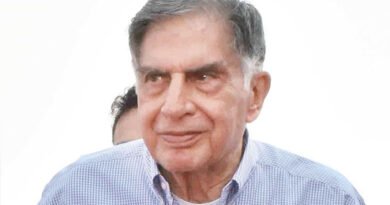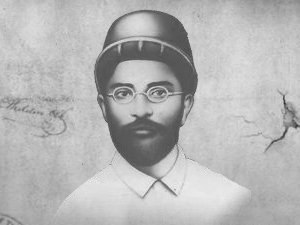SHAHRUKH TARAPORE – PROMOTING PURPOSEFUL TECHNOLOGY
Archetype Solutions Group’s new CTO, Shahrukh Tarapore, spent a lot of time in academia before realizing he didn’t want to become a tenured-track professor.
He was on the road to getting a Ph.D in computer science, but wanted to be able to apply research in a more direct way. So, he finished a master’s program at the University of Virginia instead, and dove into work at a Cherry Hill research lab for Lockheed Martin, focusing on machine learning and simulation modeling. He become a software developer by training, conducting research in advanced systems engineering and advising the corporation of the future of its technology.
“That is where I made the bridge between technical and business-focused background within a larger enterprise,” the 2020 RealLIST Engineer told Technical.ly.
Tarapore was eventually tapped to run all of the company’s R&D programs in India, fostering the relationships required for corporate responsibility and offsets. But after a few years, he started to feel the pull back to the United States.
He talked to Technical.ly about how he’s navigated his career since coming back to the Philly region. This interview has been edited for length and clarity.
###
Techncial.ly: What made you want to come back to Philadelphia after working in India?
Shahrukh Tarapore: It was a great experience, but I was getting burned out, I never saw my wife. Philadelphia was where my stuff was and I’d decided I’d had enough. I wanted a small org where I had more influence over a lot of aspects, over being a cog in a large machine. Chris Cera with Arcweb and I had been friends, and he talked to me about joining the company in a growth stage. I finally accepted and joined as a product architect, and eventually took over engineering team as head of engineering.
This was in 2015. We were a fledgling boutique consulting company, and what Chris and I did there from a tech perspective was professionalize strong developers into a streamlined process so we were able to deliver a quality software development process. I spent five or six years doing that, helping mature the process within an organization. I got to see a lot of finance, tech, engineering in a great environment. I had a lot more influence on software development and engineering.
And at the same time, because I was in a small org, it was really Philly-centric, and it was great entry point into getting more into Philadelphia. I got into civic culture, nonprofits and the tech ecosystem. Chris is a huge supporter of people engaging at that level. Then, fast forward to May of this year, for a lot of different reasons, it was a good time to move on — good growth for me and for others who could level up.
Tell me about your new role. How does it compare?
Now, at Archetype Solutions Group, I’m helping to build a tech org within the company. We target mid-market companies in the employee benefits space and healthcare with a goal with doing that management consulting work, to create an avenue for deal flow into the venture capital arm of our work. It gives me a view into a lot of different companies, and I get to play matchmaker to different orgs that might have value to other companies experiencing those products. A lot of work is in maturing and building tech and serving as a CTO to early-stage portfolio companies.
I’m still very much the new kid on the block, and I still have the luxury of coming in with some humble ignorance and asking how things work and why. I think that creates a safe space to talk about “why are we doing what we’re doing?”
What about a tech career drew you in?
I’m in a minority set of technologists where in my career, I’ve been less interested in tech for the sake of it being cool, and more motivated by it serving some purpose, whether that be to improve user experience or help them get something done. I’m actually usually the person in the room advocating for technology to be the last thing to do if you cant find another way. We’re always looking for that next technology, and I think I come from a perspective of exhausting all options before introducing new technology. Because in the world of tech, there’s always unintended consequences with new technologies.
There’s a mantra out there — “move fast and break things.” I think it’s created a lot of problems beyond technology. I think there’s a way to learn and not cause chaos for chaos’ sake. That’s the way I build teams.
Do you have advice for others who are considering a career move that’s intimidating or scary?
The thing I try to remind people of is, we’re in such an exciting time in an exciting industry. We’re in a place of privilege. A lot of other people don’t have the breadth of opportunities we have as technologists. And no matter where you are in your career, if you’re actively improving yourself and looking to be a good contributor to your team, and you’re making a career choice between Job A or Job B, its really not what’s good or what’s bad — they’re usually both really good choices.
It’s more opportunity costs. Both A and B are fantastic. Trust that if it turns out that Job A wasn’t all it’s cracked up to be, you’re still in a great space and you have a great perspective of Job B and can go and be successful over there. It’s about making that choice and riding it to its conclusion and then finding the next one.





